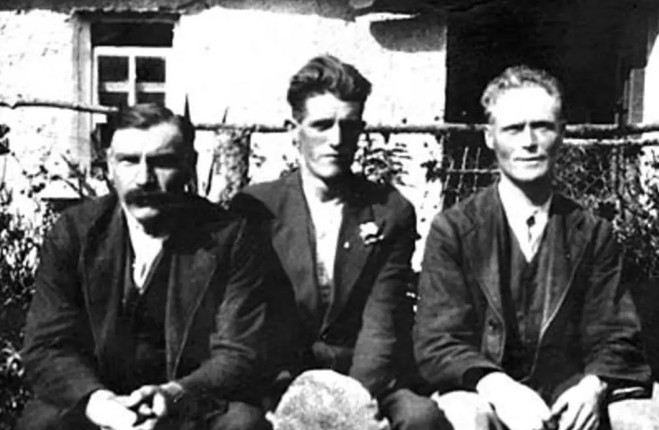NOVEMBER 2018 MARKED the centenary of the end of the First World War and next month, 21 January, will be 100 years on from the start of the Irish War of Independence.
The Irish War of Independence was the culmination of Ireland’s nationalists pushing for separation from the British, and a troubled few years at home.
Given how closely linked the GAA was to the nationalism movement, it was presumed by historians for years that WWI had very little effect on members of the GAA, as Ireland’s nationalists were largely against fighting on behalf of Britain.
That was until recently when historian Dr Dónal McAnallen, came across an article on the footballer William Manning, a member of the Antrim team that reached back-to-back All-Ireland finals in 1911 and 1912, but died in the final year of the war while fighting in France.
Having heard very little about Manning’s story in the past, McAnallen went looking for similar stories of prominent GAA players who took part in the war.
To date a number of soldiers with GAA backgrounds around the country have been found, including 10 men who played in All-Ireland finals.
McAnallen shared some of his research with us, including the stories of a Tyrone county secretary that wanted to fly and a tattoo that saved the Tipperary goalkeeper on Bloody Sunday:
If the video doesn’t play correctly click here.
The research over the last number of years shows that the First World War did in fact have a noticeable effect on the GAA around the country.
McAnallen also explained that a small junior club from Belfast, St Peter’s, reported that at least 20 of their members were involved in the war.
“That’s an extraordinary figure”, he says.“I wouldn’t say that a lot of other clubs had numbers as high as that but, even then it’s still an extraordinary number given what we thought before.
“In so far as people wrote GAA history books, they would have given the indication that GAA members didn’t really take part or that it didn’t effect the GAA.”
McAnallen is hoping to release his findings in a publication early in 2019, and is still investigating other ties between the GAA and the war. So far, McAnallen and the other historians that have worked with him have found players from every country bar Roscommon, Westmeath, Fermanagh and Longford who fought in the war.
“No doubt more stuff will come out only when it’s in print, because only then will people be able to correct it and add to it. That’s just the nature of these things.”
Murray Kinsella, Gavan Casey and Andy Dunne preview another big weekend of rugby action and dissect the week’s main talking points.
Heineken Rugby Weekly on The42 / SoundCloud
Subscribe to our new podcast, Heineken Rugby Weekly on The42, here:

